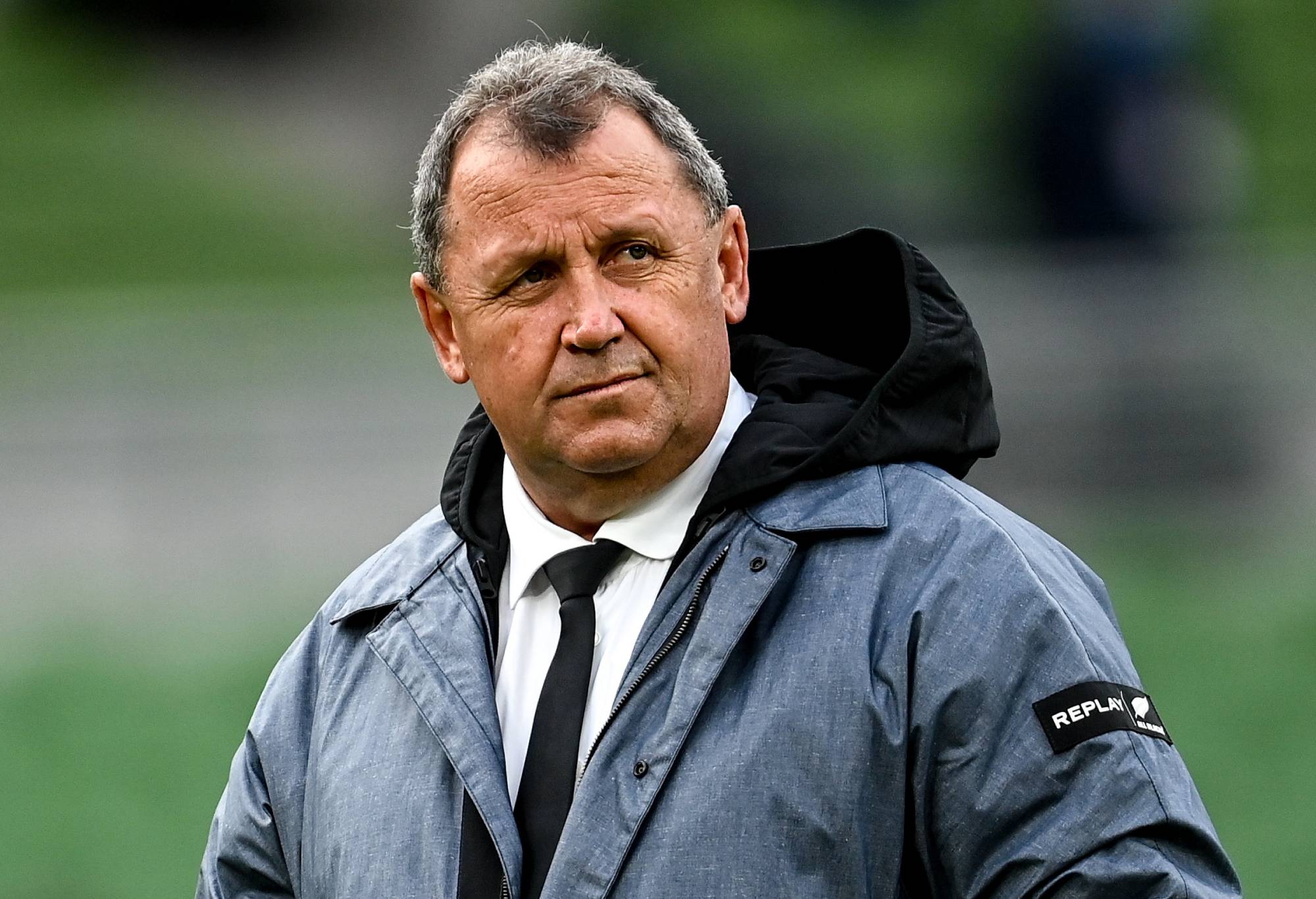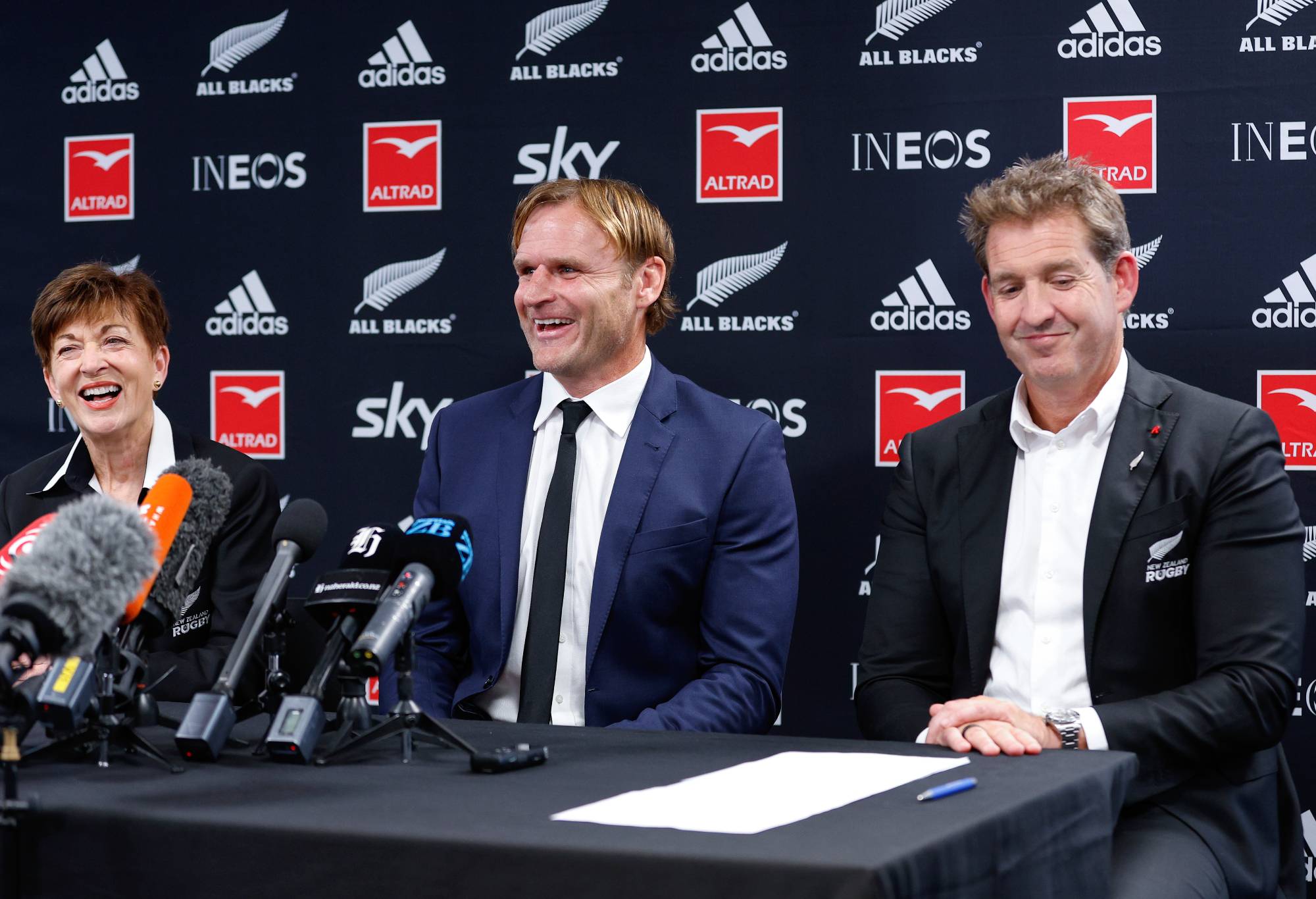There’s a general election due to be held in New Zealand in October this year, and even if rugby isn’t the universal religion it once was, it’s still fair to say that the selection of the All Blacks coach matters more to many New Zealanders than the business of electing a new PM.
Newly anointed All Blacks coach Scott Robertson said it himself yesterday, on the occasion of the announcement of his appointment, suggesting that the process felt like an election. One that every New Zealander who plays or watches rugby, feels they have a stake in.
By now, everybody knows the story. After taking the reins as head coach following the 2019 World Cup, in a transition that was too smooth and matey for most, Ian Foster struggled to capture the imagination of the New Zealand rugby public and, retention of the Bledisloe Cup aside, failed to win matches that the same public had grown accustomed to winning.
So dire was the situation last year, Robertson was asked to ready himself for impending transition into the role, while Foster and his misfiring team trooped off to Johannesburg to play out his final act.
What happened was stunning, on a number of levels. The players, in an emotional defence of their boss, found authority, braveness and clinical precision where previously there had been precious little. The World Cup champions were handed their backside to them on a plate, 35-23, Foster was locked in for the World Cup, and a bemused Robertson went for a surf and wondered when his day might come.

There will be much debate around Ian Foster’s time as head coach of the All Blacks. (Photo By Ramsey Cardy/Sportsfile via Getty Images)
Come it did, yesterday, and while it will be Foster’s team that lifts the curtain on the World Cup in Paris on September 8th, the future is all Razor.
There has, throughout the last twelve months, existed a sense of New Zealand rugby stumbling out of a bar on the left bank of the Seine, in search of a World Cup, but not knowing exactly where to look, or how to even order a taxi to take them to where they need to be to find it.
Decisions have been made – and not made – on the run; egos bruised and soothed, fingers wagged. Actions that may have satisfied Foster were disrespectful to his challenger. Efforts to be fair to Robertson were disrespectful to the incumbent.
But what yesterday’s headline writers described as chaos and turmoil in New Zealand rugby will soon fade, as the realisation dawns that – by accident rather than design – the right undertaking has played out.
As messy as this process – if what has occured can be honoured with that description – has been, and the consternation it has caused both Robertson and Foster, there was really no other way.
Asked last year to deliver a result in South Africa, a Bledisloe Cup and a Rugby Championship, Foster delivered just that. Die cast, to replace him prior to the World Cup would have been unconscionable.
But to provide Foster with a blank cheque, with the promise to continue on after the World Cup, even if he happened to be successful, would also have been a grave mistake.
Successful organisations don’t, as a matter of course, allow leaders to continue in their roles until they fail. It is healthy, and indeed common, for organisations and talent alike, to pick the right moment to move on from each other; sometimes at the top, other times to allow orderly transition for the successor.
In short, the needs of the organisation always trump the rights of the individual. Foster is by no means the incompetent, bumbling coach many were quick to paint him as. He has played a key coaching role in the All Blacks program since 2012, and rightfully can claim a decent share of the credit for delivering what is arguably the most golden run of sustained success in the history of the game.
But win, lose or draw from here, it was undoubtedly time to call time.
The air will clear quickly and Foster, when whatever grumpiness he holds for the process and this outcome subsides, will now enjoy a clean run at the job; albeit with an end date now locked in.
Importantly, New Zealand’s World Cup campaign will be about just that, the World Cup. Foster and his players not having to field tiresome questions about his future, and instead being able to focus on winning, which will be worth its weight in gold.
The playing group have been outspoken in their support for Foster. They too will adapt quickly to the situation, just as the Wallabies handled the news of the transition from Dave Rennie to Eddie Jones. Expect there to be excitement at what lies ahead, but also there to be a strong desire to send their gaffer off with a bang.
What of the unsuccessful candidate, Jamie Joseph? With Japan’s brilliant performance at the 2019 World Cup on his CV, he is a victim, not of uncertainty about his ability to do the job, but of Robertson being in the queue ahead of him.
His entering the race provided NZ Rugby with a classic ‘no lose’ situation. Only 53, there is still time for Joseph’s day to come.
The New Zealand general election is scheduled to be held on October 14th, this year. That’s the same day the All Blacks – assuming they wriggle their way out of Pool A – will play a quarter-final against one of Ireland, South Africa or Scotland.
Win and Ian Foster’s tenure as coach extends another week, potentially two. Lose and mark down election day as the day Scott ‘Razor’ Robertson effectively becomes the man in charge, getting in ahead of his official 2024 start date.

Few All Black fans will be displeased with Scott Robertson’s appointment. (Photo by Hagen Hopkins/Getty Images)
So, what kind of coach will Robertson be? On field, almost certainly the same coach he is now. The same man who has won with the Crusaders, every Super Rugby, Super Rugby Aotearoa and Super Rugby Pacific championship since he took charge in 2017.
His only blemish? Missing the final of the Super Rugby Trans-Tasman add-on competition in 2021; on points difference, his side winning five matches from five. Some failing.
He will be the same man whose team plays with a blend of the understanding of set-piece dominance along with a need to provide strike power across the park, from numbers one to 23; where there is a demand for players to attend to the basics while also keeping a keen eye for the innovative and daring, and having the licence to play into those opportunities.
Jason Ryan aside, expect there to be wholesale changes of support staff and better engagement with media and community. These might not be the metrics Robertson is ultimately measured on, but with expectations of an 80 per cent or better win rate – for better or worse – baked in, across the board, renewal will be gladly welcomed.
In the early phase of his tenure at least, before the four-yearly World Cup flywheel turns, and the intense focus and pressure begin to pile upon him, Robertson will be judged on his ability to engage the rugby public; to make following the All Blacks fun again. More fun than what it has been under Hansen and Foster.
On that count, and despite them more often than not being able to get out of their own way, NZ Rugby got the outcome they needed.






























































































